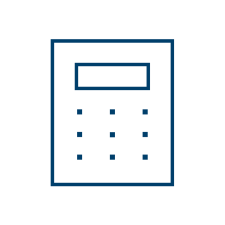Get the facts on this strategy and how it can potentially help you save on taxes in retirement.

A Roth conversion involves moving assets from your traditional IRA or employer-based retirement plan to a Roth IRA. While you'll pay taxes on the pretax retirement assets in the year you convert, future earnings on your money will be tax-free in a Roth IRA — and withdrawals will be tax-free as well, provided you have met certain requirements.
Overall, when timed appropriately, Roth IRA conversions can help you potentially save on taxes — but they aren’t right for every investor. An Ameriprise financial advisor can help you consider whether a Roth conversion makes sense for you and how it can support your broader retirement goals. Here’s what you need to know about Roth conversions.
How does a Roth IRA conversion work?
A Roth conversion occurs when you take assets from a qualifying retirement account — which includes a traditional IRA, SEP, SIMPLE IRA or an employer-sponsored retirement plan such as a 401(k) — and move them into a Roth IRA.
By doing so, you are essentially converting pretax assets into ordinary taxable income — without the 10% tax penalty on withdrawing money before age 59½. To do this, you’ll be required to pay income tax on the amount you convert in the year you do the conversion. In essence, you pay a one-time tax now, so you don’t have to pay taxes later.
Learn more: Roth IRA benefits: 5 reasons why Roth IRAs can be a powerful investment tool
|
Benefits |
Risks |
|---|---|
|
|
Who should consider a Roth IRA conversion?
A Roth conversion may not make sense for everyone.
In general, a Roth conversion may be beneficial for investors who:
- Expect to be in a higher tax bracket in retirement.
- Earn too much to contribute to a Roth IRA.
- Have time to let the money grow and won’t need the converted funds for at least five years.
- Can pay the taxes on the conversion without tapping into the converted funds or other retirement assets.
- Are seeking to diversify the taxability of their retirement income. Many investors tend to be overweighted in investments that will be taxed in retirement — and Roth IRAs can act as a helpful counterbalance to deferred-tax accounts like 401(k) plans and traditional IRAs.
- Are looking for a tax-efficient way to pass on assets to beneficiaries. Non-spouses who inherit a Roth IRA that meets the five-year holding requirement don’t have to pay any taxes on the money and generally have 10 years to empty the account. And spouses have even more options.
In general, a Roth conversion may not make sense for investors who:
- Expect to be in a lower tax bracket in retirement.
- Have to use retirement assets to pay the taxes due on the conversion.
- Are pushed into a higher tax bracket due to the amount you convert or if you’re uncertain of your tax situation for the year. Once you do a Roth conversion, you cannot undo it.
When may a Roth IRA conversion be especially beneficial?
There are certain scenarios that may warrant extra consideration for Roth conversions:
-
If you have a lean year: Since the amount of money converted is treated as ordinary income for tax purposes, it can be beneficial to consider doing a Roth conversion in a year when you know your income will be lower than it will be in retirement, perhaps due to special circumstances such as a temporary employment situation.
-
If the markets are down: During all market cycles, it’s wise for investors to consider Roth IRA conversions for underperforming assets, but down markets can be particularly advantageous, since the assets in your account may have a lower valuation during the downturn. That could generate a smaller tax bill from the conversion, and the potential prospect of tax-free growth in the future. However, there are risks with this approach: it’s impossible to choose the "bottom" of the market and the value of the IRA that is converted to a Roth IRA may continue to decline. Therefore, it may be worth less than the market value that was reported — and taxed — when the conversion was done.
-
If there’s a large age gap between you and your spouse: If you’re married, initiating a Roth conversion while you and your spouse still file taxes as a couple can help a surviving spouse better manage their taxes in the event of their partner’s death. Because withdrawals are not included in modified adjusted gross income for tax purposes, a surviving spouse may be able to avoid moving into a higher tax bracket when their status changes from joint to single.
-
If you plan to move to a higher-tax state: Some states partially or entirely exclude retirement income — including distributions from a traditional IRA — from state income tax. If you plan to live in a state that excludes retirement income from state income tax, a conversion to a Roth IRA may be less advantageous. However, if you’re planning to move to a state that has a higher state income tax rate, converting at least some of your assets to a Roth before you move could be beneficial.
Should I convert pretax assets to a Roth IRA?
Work with your financial advisor to determine if a Roth conversion is appropriate for you, given your unique situation. To get more specific numbers on how a Roth conversion could financially benefit you, use our calculator below.
Roth IRA conversion calculator
Use this calculator to see how converting your traditional IRA to a Roth IRA could affect your net worth at retirement.

What about after-tax Roth IRA conversions?
If your income is too high to contribute to a Roth IRA, you have another option for establishing a Roth through a strategy known as a backdoor Roth conversion. A backdoor Roth is an after-tax Roth conversion where you contribute money to a non-deductible IRA (i.e., a traditional IRA) or make an after-tax deferral to a 401(k) and then complete the conversion by moving the balance over to a Roth account. This strategy allows high earners to fund a Roth IRA and potentially benefit from the tax advantages.
Learn more: Roth IRA strategies for high-income earners
Determine if a Roth IRA conversion makes sense for you
Your Ameriprise financial advisor can help you assess whether a Roth conversion, whether it’s pretax or after-tax, may be financially beneficial for your retirement years.
One of your clients has some questions they would like to discuss with you at your next meeting.
warning Something went wrong. Do you want to try reloading? Try again
When you’re ready to reach out to an Ameriprise financial advisor for a complimentary initial consultation, consider bringing these questions to your meeting.
Reach out to %advisor% to start the conversation.
Or, request an appointment online to speak with an advisor.
At Ameriprise, the financial advice we give each of our clients is personalized, based on your goals and no one else's.
If you know someone who could benefit from a conversation, please refer me.
Background and qualification information is available at FINRA's BrokerCheck website.